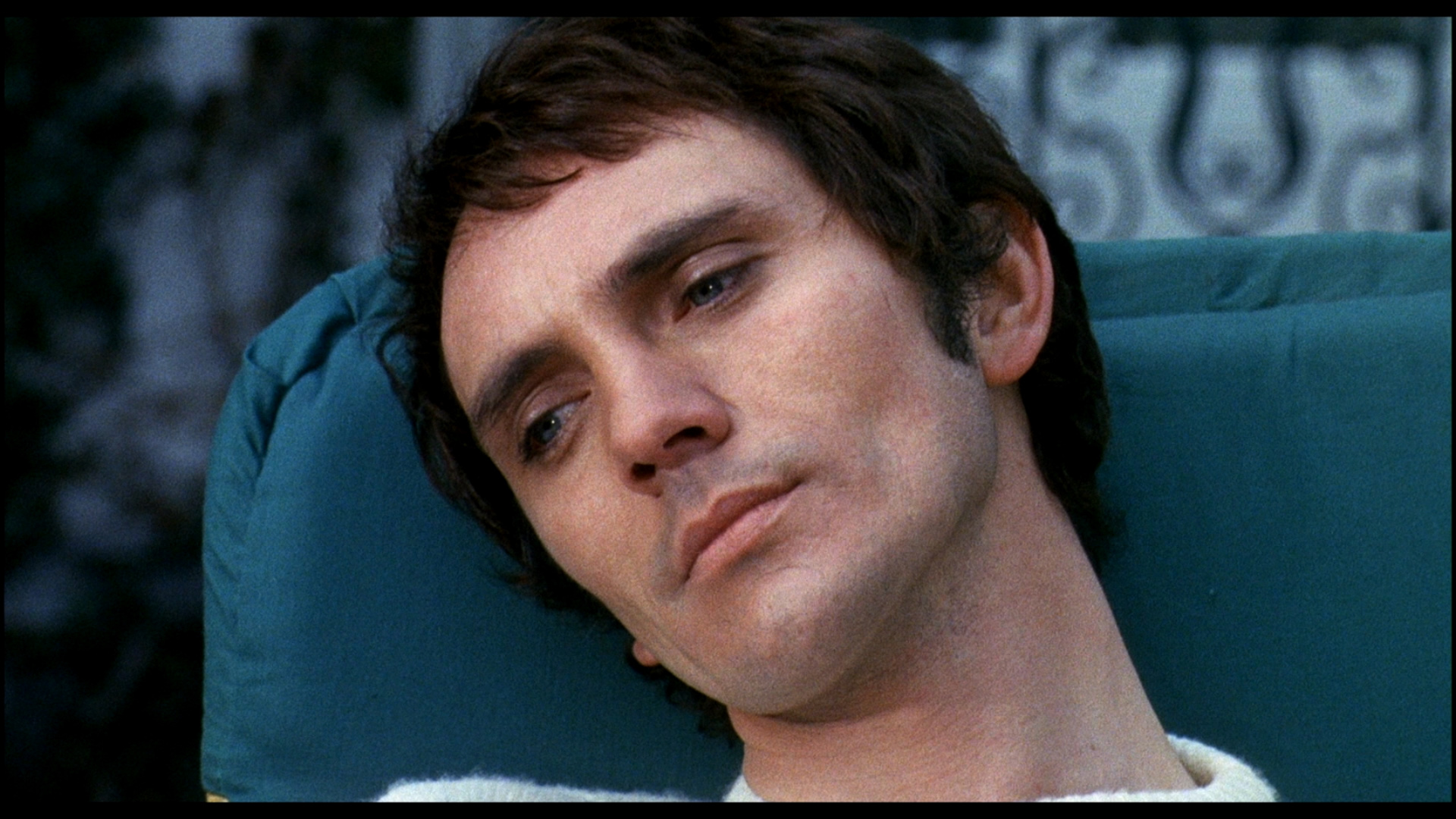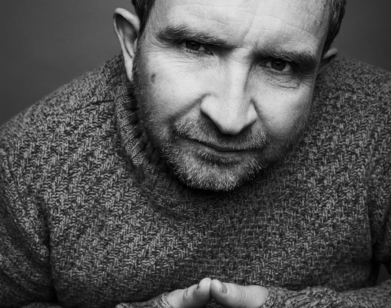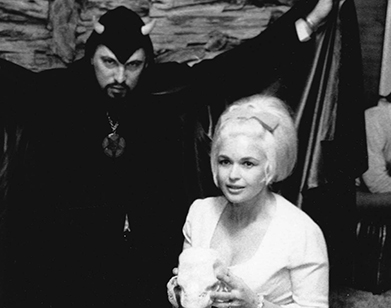Seven life lessons learned from character actor Terence Stamp

THE VISITOR (TERENCE STAMP) IN PIER PAOLO PASOLINI’S TEOREMA. COURTESY OF JANUS FILMS.
Though once dubbed “the most beautiful man in the world,” the charismatic British actor Terence Stamp, who grew up in a working-class family, has led a complex life. Now 79, Stamp became a bona fide star at age 23 with his role as the title character in the 1962 film adaptation of Herman Melville’s Billy Budd.
In the late ’60s, he seemed to be at the pinnacle of his career. On-screen, he had cemented his status as an icon of the Swinging Sixties in a number of films—William Wyler’s The Collector (1965), Joseph Losey’s Modesty Blaise (1965), and Ken Loach’s Poor Cow (1967)—that emphasized his blue-collar roots and allowed him to speak in his genuine cockney accent. Then he played what are arguably his most memorable roles: a mysterious visitor who seduces a whole family in Pier Paolo Pasolini’s Teorema (1968) and a decadent actor in Federico Fellini’s hallucinatory short Toby Dammit from the omnibus Spirits of the Dead (1968).
Off-screen, he was famous for his high-profile romances with actress Julie Christie—their affair was immortalized in the Kinks’ song “Waterloo Sunset”—and leading fashion model Jean Shrimpton. But then roles inexplicably started drying up when Stamp was only in his early 30s, and he lived on an ashram in India for nearly a decade, before he reinvented himself as a character actor.
After his turn as the megalomaniac supervillain General Zod in Superman and Superman II (1978 and 1980, respectively), notable roles followed, including that of a London gangster in Stephen Frears’s The Hit (1984), a transgender cabaret singer in The Adventures of Priscilla, Queen of the Desert (1994), a vengeful ex-con in Steven Soderbergh’s 1999 film The Limey, and as the pensioner husband of a terminally ill woman (played by Vanessa Redgrave) in Song for Marion (2012).
Stamp is also a philosophical and largely self-educated man in his real life. He’s written five books about his life and career, as well as a novel and two wheat- and dairy-free cookbooks. Ahead of Stamp’s 14-film career retrospective at Metrograph, here are seven life lessons from the latest installment of his funny and candid memoirs, The Ocean Fell Into The Drop.
Roll the dice—and lie to your parents, if necessary
Stamp once told British broadcaster Michael Parkinson that as a kid he didn’t think too much about his life; he just thought about going to the pictures. Ever since he saw his first Gary Cooper movie with his mom at age three, he longed to be an actor. But after his father found out, he abruptly forbid any such talk, and acting became a secret dream for Stamp.
That he was dismissed from the then-mandatory two-year military service for fallen arches and subsequently won the sole scholarship at a London theater school was miraculous, he declares. (He studied drama sneakily. His parents thought he was still working at an advertising agency.) One of Stamp’s most treasured moments was the premiere of his first film. The much-photographed formal event, which landed the family’s picture in the newspaper, made it clear to Stamp that his beaming parents were proud of him.
Slow down time
Stamp recalls transcendent experiences while making films like The Hit, for which he got into a meditative zone. Time seemed to slow down, allowing him to settle “into the stillness that encompasses everything” and then “the words seemed to flow effortlessly.” His first such experience occurred while making Billy Budd. During a crucial scene, he conjured a sense memory from his childhood. Later, during the screening of the film—which earned him an Oscar nomination—he realized that an actor’s feeling in a performance can be more powerful than any lines.
Clothes make the man (or woman)—usually
Growing up, Stamp’s mother made sure all her children were spotless and well turned out so his schoolmates wouldn’t realize how poor the family was. From an early age, the actor had a deep-seated awareness of the power of clothing, dreaming about made-to-measure shoes after his first film role and later having clothes made for him in Rome, like a pink linen suit without any lining that he still wears today.
His outfit (and a haircut by Vidal Sassoon) failed to salvage Stamp’s date with Brigitte Bardot in the late ’60s, though. He wore his favorite trousers—a pair of drop-falls strides from his Far from the Madding Crowd wardrobe—since they were the article of clothing in which he felt most comfortable. In the end, the glamorous actor spent the evening lamenting his failure to learn French in grammar school and feeling decidedly unsophisticated as he chatted awkwardly with Bardot, while the actress’ agent served as impromptu translator.
Be open to the world around you
While working on the Fellini film in Rome in the late ’60s, Stamp’s interpreter, Patrizia, introduced the actor to a number of people who affected his life profoundly, namely, Contessa Vadna Passigli-Scaravelli, who gave him breathing lessons and served as his first yoga teacher; and Jiddu Krishnamurti, the first philosopher and sage to teach Stamp about consciousness and meditation. Since he was suffering from an ulcer during the Toby Dammit shoot, Patrizia, who was also Fellini’s astrologer, advised him to temporarily give up meat and fish, noting that Cancerians often have digestive issues. He has been a vegetarian ever since.
Tackle the chaos inside your mind before any other tasks
In the book’s foreword, Stamp invokes an exchange between the Dalai Lama and a fan that effectively captures Stamp’s M.O. since at least the late ’60s. The person asked, “What can we do about the crazy havoc in which we live?” The Dalai Lama replied, “Attend to the crazy havoc inside yourself first.” During the 1970s, in addition to yoga, breath work, and meditation, he studied Sufism and mysticism in the interest of self-improvement. In the ’80s, he was an ocean away when his beloved mother died. Since he was in the middle of shooting a film in the States, he began “scribbling” his thoughts to cope with his grief. Eventually, his outpourings turned into his first memoir, Stamp Collection.
Let the potential for growth guide your decision-making
In the early ’90s, while an actress friend was over at Stamp’s apartment for tea, she leveled with him. People thought of him as a recluse. His approach to choosing roles was too fussy and restrictive. He should tell his agency that he wanted to do comedies. Just then, his agent called to check in about a low-budget script she’d sent Stamp, for which Stamp would play the part of a transgender cabaret performer. “Tell her yes. And hang up,” she ordered. Stamp meekly obliged, thereby agreeing to the comedy The Adventures of Priscilla, Queen of the Desert. Instead of thinking in terms of career moves, she said, he should consider the potential for personal growth that a given project could offer. He took her advice, and continued to “just keep saying yes” to acting jobs.
Be present
The main lesson Stamp wants to impart is to be conscious in your own life on a moment-to-moment basis. His prowess as a performer is largely due to his unusual ability to remain in the moment. He brings a presence of mind to each of his roles, which makes him entirely convincing as an enchanting stranger, a dissolute movie star, a demented kidnapper, an innocent sailor, the pope, the devil, or even the voice of God.
Stamp mentions that in Sufi tradition “unnoticed thought” can be equated with ego. At one point, Stamp’s teacher Krishnamurti reminds him that merely by noticing when he is not present, “the mind is sharpening itself.” The Ocean Fell Into The Drop is peppered with erudite allusions and mystical concepts, but Stamp also emphasizes the importance of being able to experience emotion, without it being “fragmented” by thought. Near the end of the volume, he quotes the 13th century Persian poet Rumi: “In the silence of love can be found the spark of life.” It’s an idea that somehow captures the curious state of being that Stamp has, time and again, tapped into as an actor.
TERENCE STAMP RUNS FROM MARCH 23 TO APRIL 1,2018 AT NEW YORK’S METROGRAPH. STAMP’S LATEST MEMOIR , THE OCEAN FELL INTO THE DROP, IS OUT NOW. STAMP HIMSELF NARRATES THE AUDIOBOOK.



